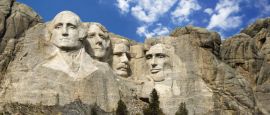United States of America Health Care and Vaccinations
| Title | Special precautions |
|---|---|
| Diphtheria |
No |
| Hepatitis A |
Sometimes |
| Malaria |
No |
| Rabies |
Sometimes |
| Tetanus |
Sometimes |
| Typhoid |
No |
| Yellow Fever |
No |
Healthcare in the United States is of a high standard, but it is also expensive and largely private. Unlike many countries with public health systems, the U.S. does not offer universal healthcare. Foreign visitors are strongly advised to have comprehensive travel insurance that covers both emergency treatment and hospital stays, as even a short visit to an emergency room can result in significant costs.
Hospitals and clinics are modern and well-equipped, and care is generally efficient, especially in urgent care centres and private facilities. However, treatment is typically not provided unless payment or insurance details are confirmed upfront—except in life-threatening emergencies. It's a good idea to carry your insurance information with you at all times, and to know the nearest urgent care or hospital, particularly if you're travelling in rural areas.
Foreign prescriptions are not recognised in the United States, and you cannot use them to purchase medication from a U.S. pharmacy. To obtain prescription drugs while visiting, you’ll need to get a prescription from a licensed U.S. healthcare provider. This can be arranged through a doctor, a walk-in clinic, an urgent care facility, or—if necessary—an emergency room. Many common medications that are over-the-counter in other countries may require a prescription in the U.S., so it's best to bring enough of your regular medications with you, in their original packaging, along with a copy of your home prescription for reference.
Most U.S. towns and cities have well-stocked pharmacies, often located inside large chain stores like CVS, Walgreens, or Rite Aid, many of which are open late or even 24 hours in larger cities.
Tap water in the United States is generally safe to drink, unless otherwise indicated. Most cities and towns have high-quality municipal water systems, and it's perfectly fine to refill bottles from the tap or ask for tap water in restaurants. In some rural or older buildings, the taste may vary slightly due to local plumbing, but it remains safe unless posted otherwise.
In general, food safety standards in the U.S. are high. Restaurants and cafés are regularly inspected, and cases of foodborne illness are rare. That said, if you have food allergies or dietary restrictions, be sure to inform your server—most establishments are accommodating, and allergen information is often available upon request.
The U.S. experiences a wide range of weather conditions, from hurricanes along the Gulf Coast and East Coast (typically June–November) to wildfires in the West during dry summer months (June–August). In winter, blizzards and ice storms can disrupt travel in northern states. Always check local forecasts, especially when travelling during seasonal peaks.
In additional, be mindful of wildlife such as bears, snakes, and alligators in rural or wilderness areas. National parks provide safety guidelines—read and follow them. In some areas, ticks can carry Lyme disease, so use insect repellent when hiking in wooded or grassy areas.
Do you have any Feedback about this page?
© 2026 Columbus Travel Media Ltd. All rights reserved. No part of this site may be reproduced without our written permission, click here for information on Columbus Content Solutions.









 You know where
You know where
